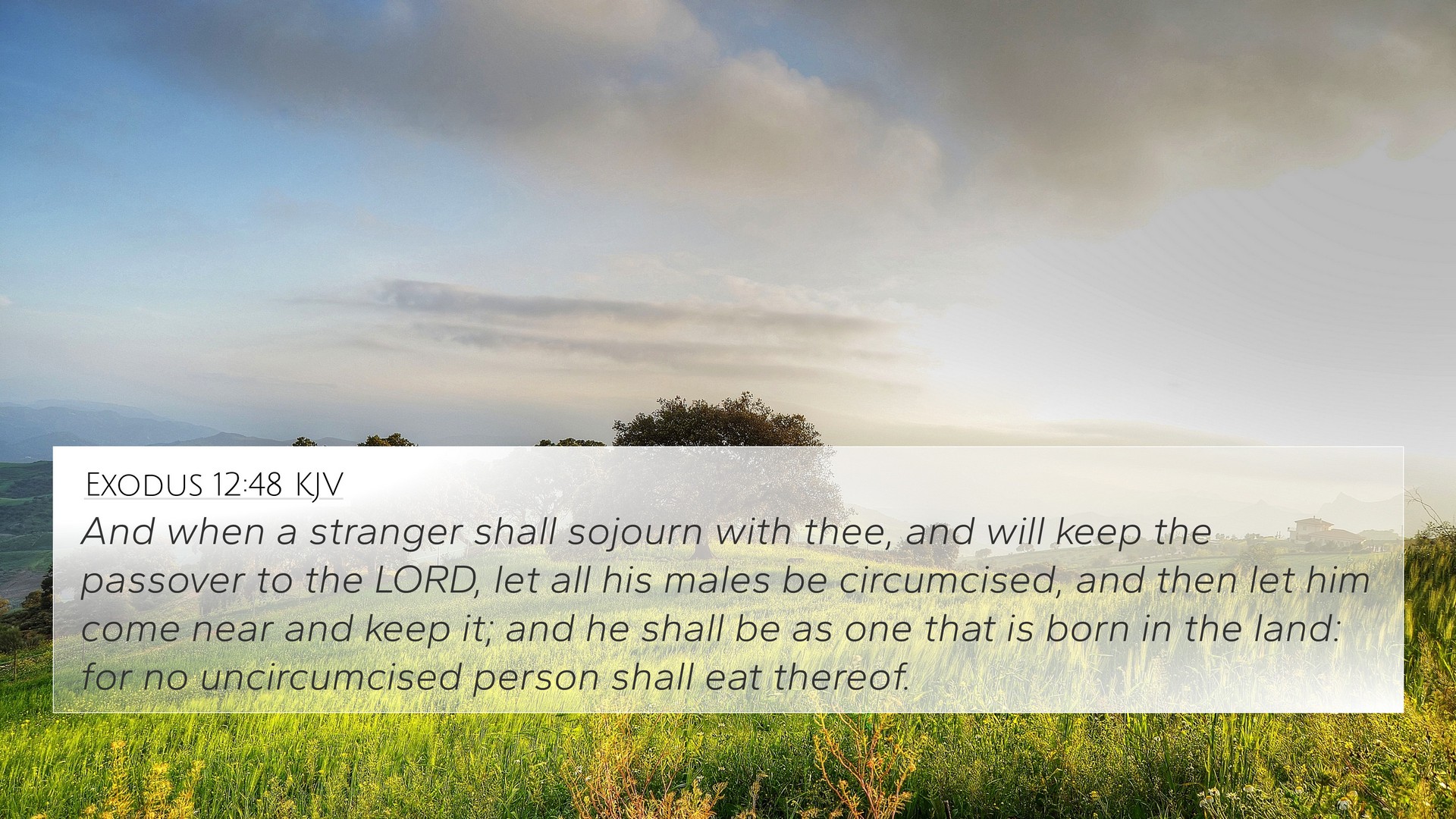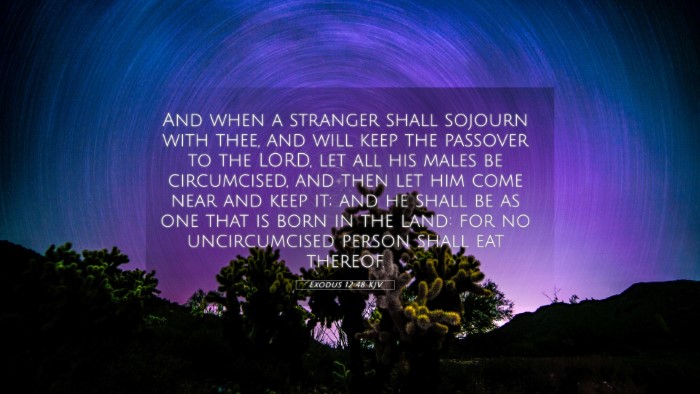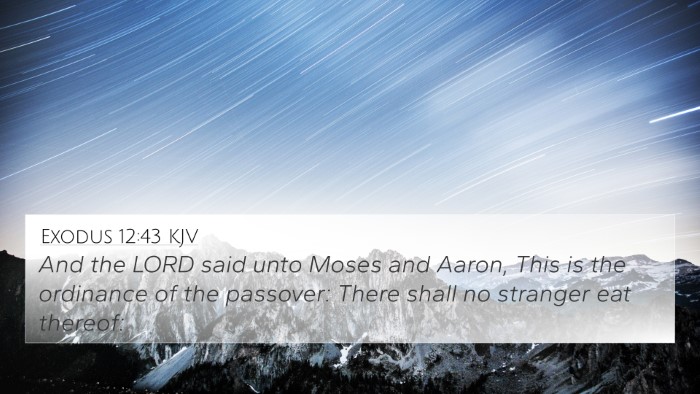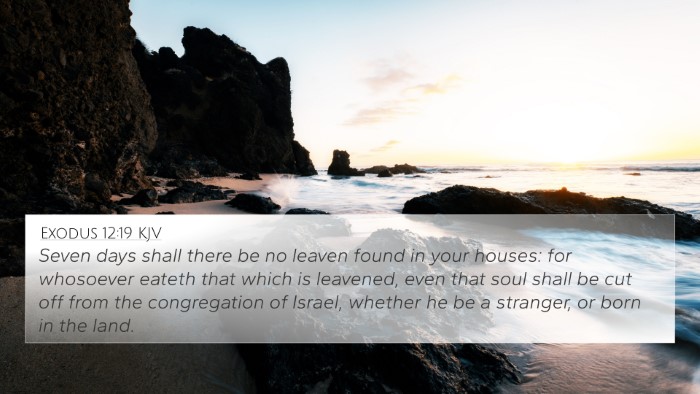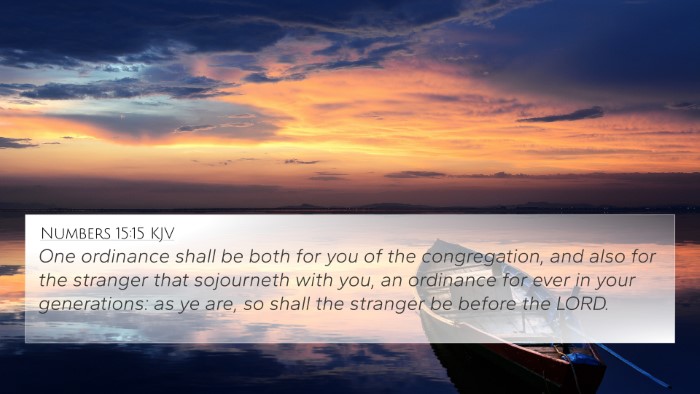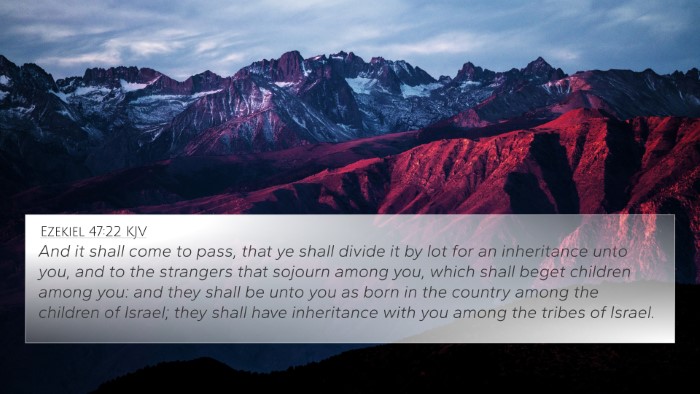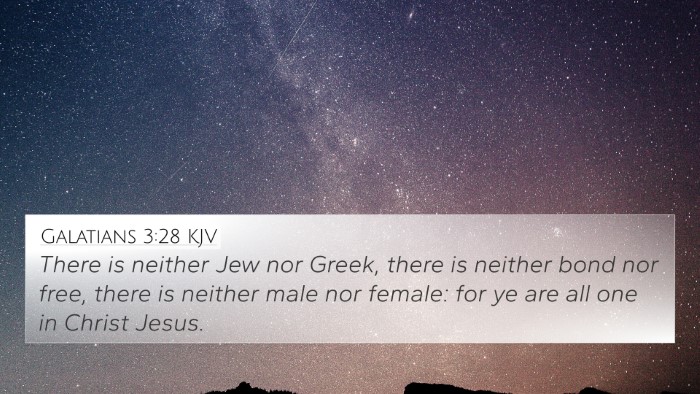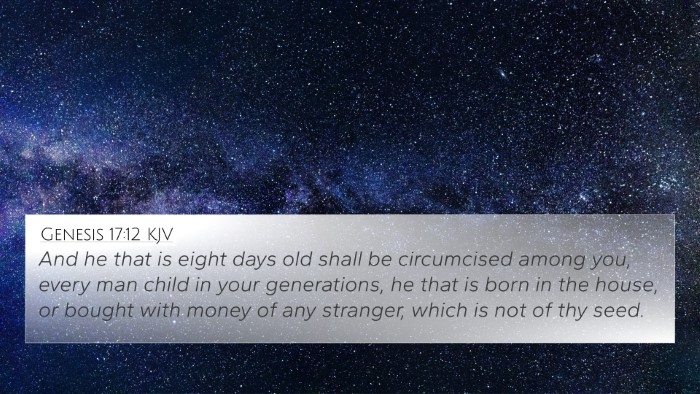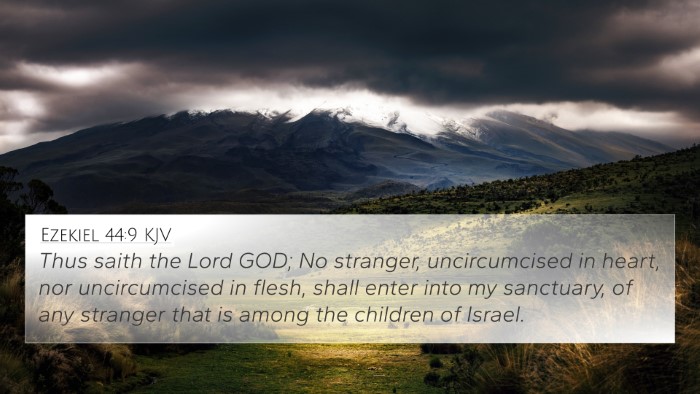Understanding Exodus 12:48
Exodus 12:48 states: "And when a stranger shall sojourn with thee, and will keep the passover to the Lord, let all his males be circumcised, and then let him come near and keep it; and he shall be as one that is born in the land: for no uncircumcised person shall eat thereof."
Context of Exodus 12:48
This verse is situated in the larger narrative of the Passover and the establishment of God's covenant with the Israelites. The Passover is a crucial event that commemorates the Israelites' deliverance from slavery in Egypt and is observed with significant rituals, one of which involves circumcision for participation.
Commentary Insights
The following insights from public domain commentaries help illuminate the meaning of this verse:
- Matthew Henry: Henry emphasizes the inclusivity of God's covenant. The stranger (or sojourner) who wishes to observe the Passover shows a desire to join the community of God's people. This inclusivity, however, requires him to partake in the covenant sign of circumcision, illustrating the importance of true commitment to God's commandments.
- Albert Barnes: Barnes points out that the command for circumcision signifies a public declaration of faith and allegiance to God’s promise. By requiring circumcision, the Israelites reaffirm that participation in God's salvation is rooted in obedience and marks a new identity as God's people.
- Adam Clarke: Clarke discusses the historical and cultural significance of this requirement. He notes that circumcision was a physical mark that distinguished the Israelites and was a symbol of their covenantal relationship with God. A stranger who wishes to eat the Passover must be fully integrated into this covenant.
Theological Implications
This verse highlights the themes of inclusivity and obedience in the biblical narrative. It illustrates that anyone wishing to join God's people and partake in their blessings must adhere to God's commands. This echoes the New Testament themes of faith and inclusion found in the teachings of Jesus and the Apostles.
Cross-References
Exodus 12:48 connects with several other scripture passages that reinforce its themes:
- Genesis 17:10-14: The sign of the covenant with Abraham, which includes the command for circumcision.
- Leviticus 12:3: Renewing the command of circumcision as part of God’s covenant with Israel.
- Acts 15:1-29: The Jerusalem Council debated the requirements for salvation, recognizing the importance of grace alongside obedience.
- Galatians 5:2-6: Paul emphasizes that salvation is through faith, while also acknowledging that faith involves obedience.
- 1 Corinthians 5:7: The metaphor of removing the old leaven to celebrate the Passover Christ, reflecting the theme of purification.
- Romans 2:25-29: Paul discusses the true meaning of circumcision and how it is of the heart, not just of the flesh.
- Matthew 28:19-20: The Great Commission emphasizes the call to make disciples of all nations, linking to the inclusive message of Exodus.
- Ephesians 2:11-13: Paul speaks about Gentiles who were once outsiders but are now brought near by the blood of Christ.
- Hebrews 13:10: Points to the continuing importance of the sacrificial system and its fulfillment in Christ.
- Colossians 2:11-12: Paul connects physical circumcision to spiritual circumcision, indicating a deeper spiritual meaning tied to faith in Christ.
Conclusion
In Exodus 12:48, we are reminded of the essential connection between obedience and the community of faith. This verse invites further exploration of how key biblical themes resonate through different passages, underscoring God's call for both commitment and inclusivity in His redemptive plan.
